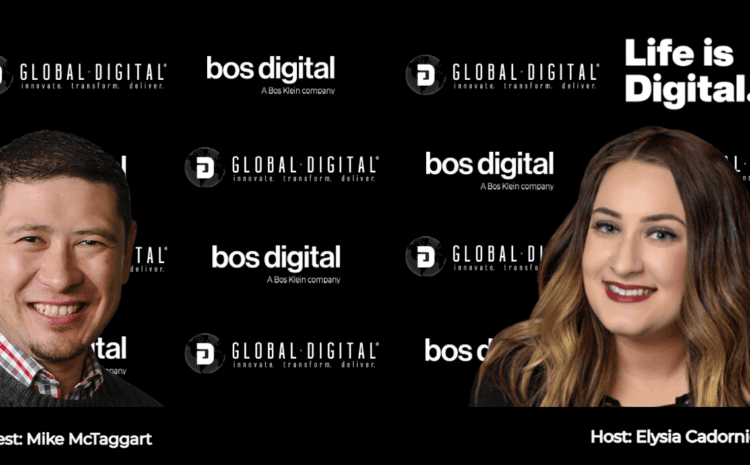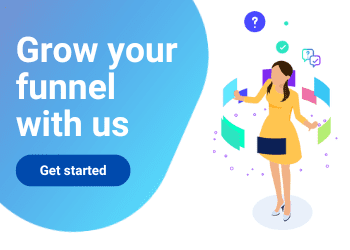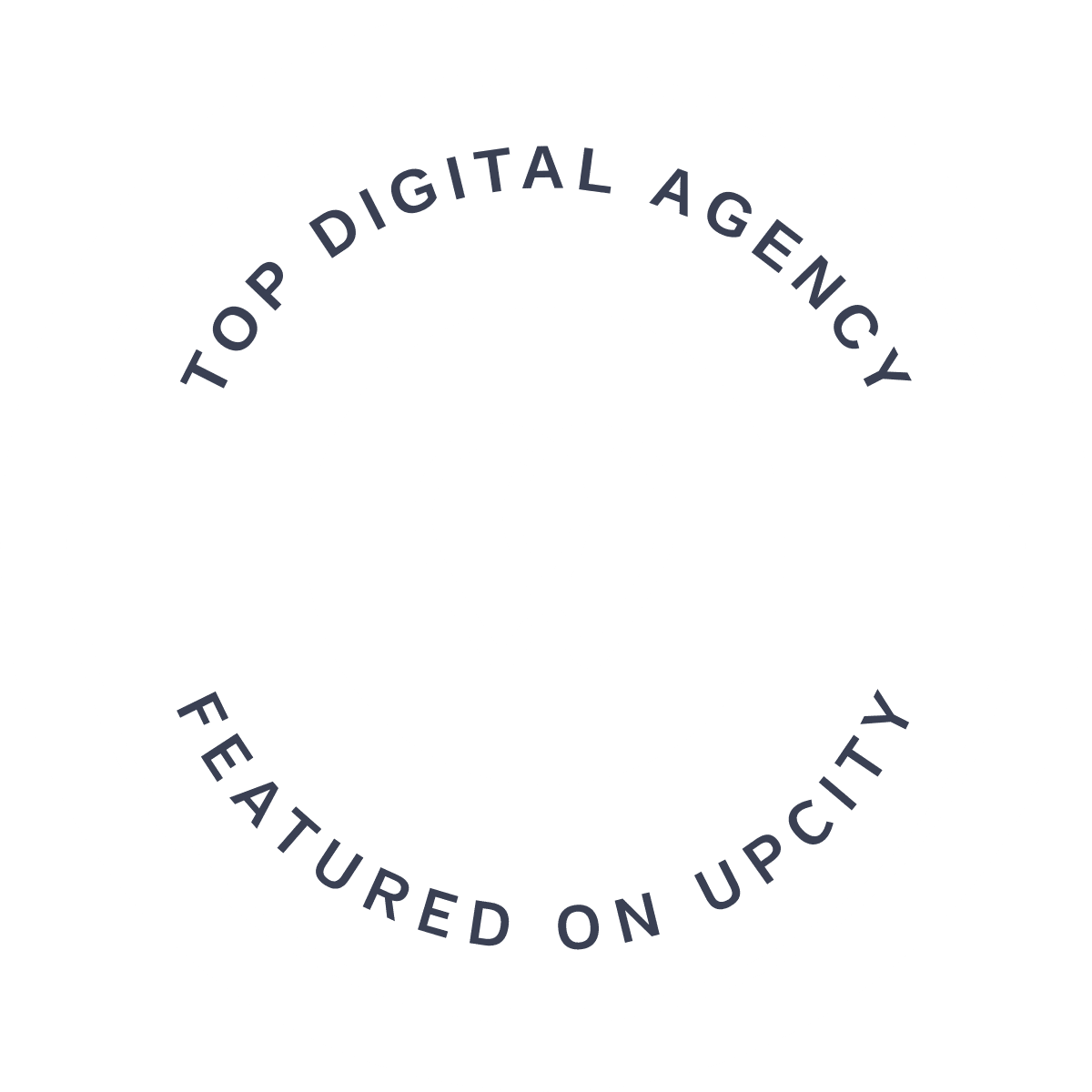Can we share our Wi-Fi with the neighborhood? – A conversation about digital equity.
Elysia: Hi everyone. Welcome to Life is Digital. I’m your host, Elysia Cadorniga. Get ready to learn more about digital marketing as we share our knowledge and perspectives on current trends, best practices and actual tips to help you grow your business in the digital age. I am so excited today, I’m here with Mike Mctaggart, he’s the President of Global Digital and also a local entrepreneur in the space here in Raleigh, North Carolina. Mike, I’m so excited to have you on.
Mike: I’m excited to be here.
Elysia: Yeah, we’ve known each other for a while. We’ve worked on a couple of projects together. Obviously Raleigh’s, a busy, busy market in the tech world, so… I know you got a lot of insights to share with us.
Mike: Oh yeah. No, this is gonna be fun.
Elysia: Yeah, it’s interesting, before we jumped on this on this recording, I know we’ve had some conversations just around just the shift, like the aggressive shift in technology, and I was on an episode… I don’t know if I’ve shared this with you, Mike, with Sharon Bui from Lenovo… But we were talking about how the world is gonna operate with Web 3 and first, and it’s kind of interesting, I was talking about that and how advanced that type of technology is, and just the everyday community or a person adopting that. And so I just talked about that and now I’m going into, Okay, what does that mean for communities and having the assets and the resources to be able to adapt to these changing ways, so I think it’s gonna be a solid, solid perspective from you.
Mike: Oh, yeah. And this is something I’m really passionate about as well. So I appreciate the opportunity to kinda get the word out, so to speak, and start a dialogue. I think there are some conversations that need to be happening in our state and beyond, that simply aren’t happening the way I think they should be right now.
Elysia: Yeah, so might tell me a little bit obviously for the audience to you, but tell us a little bit about your background, and more specifically, I’m really interested in some of these projects that you’re working on.
Get to know Mike as the President of Global Digital and Local Entrepreneur.
Mike: Yeah. So yeah, I was born in South Carolina, but I’ve been in North Carolina since the mid-90s. So North Carolina is my home now. I’ve got a bit of an engineering background, that was how I was formally trained, and so where I started my career, so I’m wired as a problem-solver, but someone once defined for me an entrepreneur as a geek with ADD and I think I fall squarely into that category. And so it’s manifested itself over a handful of projects that I’m involved in, either as a consultant or owner or investor, and so that’s kind of where I find myself today, and this notion of the digital divide and how we address digital equity in our state is sort of a passion project for me today and also the primary focus of one of my newest companies.
Elysia: That’s exciting. So digital equity is kind of a new topic for me in the past year, really honing in and understanding what that really means, so in your world, what… Share a little bit more about what’s involved when you say digital equity?
Mike: Well, so first of all, I like to kinda frame the conversation and say, Alright, equity is an equal opportunity, not necessarily an equal outcome, and so usually that gets broken down into a couple of facets, when when we talk about digital equity, there’s access and affordability, those are two sort of big broad categories, and there are a lot of focus on access, but I think sometimes that’s misplaced, so if we look at access as really meaning connectivity, and then a lot of times folks will also kind of bundle in education or knowledge, you know how and how to use the access or use devices. The reality is here in North Carolina were about middle of the pack, we’re 18th in the country for broadband access, but what that really means is for our population of just under 11 million people, about half of which is concentrated in the Charlotte, triad and triangle areas. Over 30% of us, including myself, have access to fiber optic internet service, which is above the national average, and our state-wide average bandwidth is over 100 megabits per second, there’s really only about 400,000 people in the state without access to a wired connection of at least 25 megabits per second, and a lot of those people, increasing number of those people, have access to data coverage. Our definition of access and tethering ourselves in quite a literal sense to it being a wired connection by definition, I think is skewing the perception of who has access and who doesn’t? Also, there’s been a lot of talk about education and people don’t know how to use computers or don’t know how to use the internet and such, and I think that’s also not giving people enough credit.
10 years ago, there is a great organization called the One Laptop per Child Project, and 10 years ago, they literally dropped off some pre-loaded tablets into two remote… Ethiopian villages, this is back in 2012, I think is literally like 10 years ago, and they expected that kids would just play with the boxes. They were sealed boxes with the tablet taped shut, no instructions, whatever. But what we saw was that within four minutes, one kid, not only I opened the box but had powered it up within five days, they were using 47 apps per child per day, in two weeks, kids in the village were singing to ABC songs and… And one kid even opened up a drawing app and wrote the word “lion” in the app, and within five months they had actually circumvented, some of the built-in controls that were customizing their own desktop, getting access to the camera, things that were by design, blocked on the tablet. They actually found their way in Android operating system around those controls, and so I think we grossly underestimate people’s capability when there’s a desire to learn and engage, and also our ability with some thoughtful design and UX, to make information and the internet just very broadly accessible.
And so that really, I think, turns our focus to the other facet or side of the coin, which is affordability, and then that’s where I think we still have a bit of distance to cover, especially here in North Carolina. And in our state, we’ve got almost a million about 800,000 people that only have access to one provider, and don’t get me wrong, I’m a huge fan of sort of free market economy and such, and so I see that access to one provider is not a good thing, and also I think the providers naturally have an incentive or an interest in selling subscriptions into each residence, which is a mindset that I think we need to shift if we’re going to tackle the issue at large. We’ve also defined a low price plan, which is what a lot of government incentives and programs are designed for, as equal or less than $60 per month. But I know from working in these communities, especially now with gas prices and food prices and other things in rapidly on the Rise, 50-60 bucks a month is a stretch, that’s a lot. And so I think that’s where we can take a fundamentally different approach to addressing the divide…
Mike’s strategy in addressing the digital divide.
Elysia: Yeah. I mean, it’s fascinating, it’s something I don’t… I know it’s there, but I don’t actively consciously, think about it all the time. Even just observing my own son and the way that he’s engaging with devices, the way that he actually has the ability to learn at a faster capacity, just by the interaction that he can do on devices. So that the study, by the way, the Ethiopian site, that’s just fascinating to me. What you just shared.
Mike: It’s amazing. We’ve seen it in our own kids as well, my girls when they were two years old, they were… they each have their own tablet and they’re swiping through the list of apps and picking what they want to do and interacting, and we’ve come so far in the study of usability and human machine interaction and building an experience that is very, very intuitive, and it just takes that extra little bit of thoughts. You may pick up, I’m also a big advocate for UX and thoughtful design, but we’ve come a long way, and I credit some of the companies like Apple and Google for really pushing us in that sense…
Elysia: Yeah, you know, it’s so funny, I went to… When was this? This was Wednesday, I went to an event around schooling and the challenges that are faced, and they focused specifically on higher education during the event, but it’s pretty across the board where it even drills down into the schools and the resources that they have to actually teach people and students, the innovation going on right now in the world and the digital shift and actually applying themselves into that space, I feel like there’s also a massive gap there between the education system and companies like Google that give accreditation and proper testing and actually taking the skill for the modern world, and it’s actually probably keeping us behind compared to other countries because of that gap in general, so I feel like this is probably I mean this conversation can be unpacked in so many different ways. I know you said the last time we talked, were you on a project recently about Housing Authority?
Mike: Yeah, so one of my of most recent kind of project and a company we’re standing up called Civitas Wireless, it is designed to address this issue. And we’ve done this a few times. Now, one in particular here in North Carolina. You know I kinda had the realization, and this is the genesis of the project. We sit here and I’m talking to you now over Zoom, and I got a gigabit fiber connection to my house, and I kind of realized that even with five people in this house streaming video, plus all the other smart devices we have in the home… I monitor the network, I’m a geek, and I never use a fraction of what I have access to. And while I don’t do this, the thought has certainly occurred to me, goodness, I could share this connection with four or five of my neighbors, we could all cut our cost and probably never notice a difference in service. And so what happened… And we were faced with a challenge, and I was actually driving around and talking to the head of the Housing Authority in a community in a small town in North Carolina. And we saw there were so many residents, nearly every resident had its own line and WiFi hot spot, you can see the generically named company installed corporate hotspot.
And this was at the beginning of covid. So covid really made remote school a thing and having three kids and being very passionate about education in this country, access to remote school, it was something I kinda tuned into early on, and I saw right away, or even a couple of years ago, decisions were having to be made between having access to the internet and other necessities in the home, but school and education was given priority and other sacrifices were made, and so combined with that earlier epiphany of why do we need a cellular hotspot sent out to every student or a cable internet subscription to every household. Can we take a fundamentally different approach to this? And that’s what we did. We brought in a handful of commercial tier high bandwidth subscription lines, and then blanketed the community with Wi-Fi because all of the devices we have today are Wi-Fi enabled, the school-issued Chromebooks and such, a lot of them don’t even have an ethernet port on them, so we don’t need a wired connection in the home, everyone’s running wirelessly, so let’s just blanket the neighborhood with WiFi. And in doing that, we dramatically reduce the cost per residence, less than half or beyond, we actually increase the quality of service because we run our own 247 X 365 call center. So if you ever had the experience of calling your cable provider or you’re in a service provider and needing tech support, you know what that’s like, I say.
“Can we take a fundamentally different approach to this? And that’s what we did.” – Mike on communal internet
Elysia: I literally did that like last week ’cause I just moved into my place.
Mike: So they don’t have the best reputation for… We’ll say white glove service. Right, but our guys, I told them flat out and said, “look, if there is a child that calls you and is having trouble getting online for a Zoom class, you do everything in your power to solve their problem before handing them back to the school, IT department or anything like that,” because everyone’s overwhelmed, there’s a whole lot of going on and no one… Especially at that time, a couple of years ago, was prepared to handle this radical change in how we run our networks, how we access the things we need to access, and how we do school or work, and so we’re able to do this and deploy the solution without sending devices into the resident homes, we didn’t have to give them anything to set up for themselves, we didn’t have to give cellular hotspots out for people to keep track of, and then it gets lost. We have to replace it. At $100 a piece. In my mind, it was much more kind of elegant and simple solution, and the feedback we got was fantastic, the kids were able to get online and do school, the folks that manage the community talked to the residents, and they were just thrilled to have internet access and be able to cancel or get rid of the cost that they had otherwise, you already taken on or… We’re trying to figure out how to take on and the exposure to opportunity has kind of snowballed from there. One thing I will give covid credit for is that it’s really opened up the world to remote work, and the fact that even a lot of clerical or data entry or customer service roles, they don’t have to be done in a corporate setting. The administrative assistant doesn’t have to have physical access to a switch board or even to the front desk in an office, they can do that job from their living room, as long as they’ve got a reasonably fast reliable internet connection. And so you start opening up these entry-level remote jobs that average 50 and $60,000 a year annually to the full spectrum of our community, and it’s life-changing, and I think everyone wins when we take the right approach to solving these problems, so that project has sort of started to snowball and kinda kicked off the need to say, “You know what, let’s make a run for this and build a business out of this, bring some formality and structure to it and discipline and see if we can solve this problem in a lot of other communities, especially here in North Carolina.”
Elysia: Yeah, that’s excellent, because it’s just… It’s something that is so detrimental right now, especially with this shift with the pandemic, because everyone’s learning that… I actually read a stat this past week that after the pandemic, I believe it was 40% of employers had stated that they still believe that even during the digital shift their team members, 40% of them were still more productive at home and in their environments than those that were actually back in the traditional workforce, and it’s a kind of interesting stat because for me personally, on a personal level, I’m in sales, so I am out and about, I like to be in front of people. Being at home is not really where I should be in the sense of my own… In my own position, in my own role, but for many people, they have found their own productive spots within their own communities, in their own homes, and people are adopting to this very gig economy kind of lifestyle, and they like having the balance that they can make between that in their home, and it’s actually showing in numbers that people are even more increasingly productive just by being home.
So having this kind of blanketed approach where this connectivity is available in the masses, that’s just gonna open up so much opportunity for those that might be limited with their own resources from having to stay home, they may not be able to travel, gas prices are growing up, out like crazy, food, everything else is going up. If you’re able to actually reduce some of your resources and being able to work from home as well, this solves so many different kind of positions that people are facing every day, right
How digital equity is important in creating opportunities.
Mike: Now, it really does, and it’s become quite a necessity to have access to… Not only information, but the opportunity represented by that connection, and so a big believer in you know, if you give people that opportunity, those that really wanna take advantage of it, you need to do everything in your power to just clear the barriers out from in front of them, but let them take the ball and run with it, and so we’re seeing that start to happen already, and while there will always be jobs that must be done on site, on-premise, there are essential roles that you will never… And I hope, I hope we never get away from… They have to be done in-person, and there’s still a tremendous value in a lot of cases for in-person interaction in the professional and corporate scene, but we have this increasing dependence on the digital data-oriented kind of roles where we’re able to interact as we are over-Zoom, you’re able to process and perform tasks asynchronously, I can get an email from you and I can reply to it right now, or 10 minutes from now after I help my kids with a school assignment, and there is no material impact between the difference of those two in terms of the business, but there’s a huge impact in the quality of my life and the relationship that I have with my family, and that increase in satisfaction and engagement takes us into a whole other topic, we could do the whole separate podcast on what they call the great resignation that’s happening right now.
But all of these factors are so closely intertwined, it’s difficult to touch one without touching another, and I think part of that foundation is opening up access and making it affordable, and then giving that opportunity, letting people run with it.
Elysia: Yeah, absolutely, I definitely think we are inflated in our perception of this for sure, especially being in places like Raleigh, I mean even your stat on North Carolina alone in the homes that aren’t connected at the same speed that you were saying, I mean just that stat all together. And we’re in a very tech-oriented state, but even we are in Raleigh, we have to think about everywhere else, all these extended regions that it’s a completely different environment that they’re working with, it’s a completely different set of resources, and it’s hard to see that sometimes when we’re in the fast-paced environment that we are in, in Raleigh.
Mike: The beautiful thing is that technology has come far enough where we can do so much wirelessly that we simply couldn’t do just a matter of a handful of years ago in terms of connection, speeds and reliability, and so I think part of the struggle that we face is there still a legacy mindset out there, and you can look even at some of the terms of the most recent legislation and stimulus packages and the money that’s being invested into connectivity, and we’re laying Fiber lots of places, and I’m thrilled for it. But there are a lot of places where it simply doesn’t make sense to lay Fiber because for a fraction of the cost, we could provide connections wirelessly, and the end result is the same, but we just need to think differently about how we get there, and then we have… An abundance of resources left over to leverage in a different way, and what do we do with that? And so these are fun problems to solve and a lot bigger than you can tackle, in certainly a 30-minute podcast, but starting to see some progress being made, and Civitas, I’m proud to say is, I think in the forefront of that and taking some of the new thinking into these sort of pragmatic approach to solving these problems.
Elysia: Yeah, I love it, I absolutely love it. Well, as we’re kind of winding down here, Mike, this has been a really solid topic, I love talking about things that impact all sorts of communities and people out there in different ways, and I think what you’re doing is great and more people should be aware of this. Any key takeaways to leave with our audience as they’re kind of digesting all this information and seeing how it’s applied in their lives?
Mike’s key takeaways for the audience.
Mike: Well, I think, I guess first, forgive me if I speak really quickly and raise my voice, I get passionate about topics, I’d say anyone that’s listening that if you didn’t catch something as I blew through it. Please don’t hesitate to reach out. I’d love to engage, answered questions, share a cup of coffee or lunch and see how we can push the conversation further. I’ve often said that my only superpower is knowing smart people, and so I’d love to get together, expand that network and engage with more of the smart folks that I know are listening to this podcast. And then beyond that, I guess a key take away from one of the topics we covered is I think sometimes we overthink some of these problems. We face a challenge, 23 think it’s too great a challenge to overcome, and I encourage people just to check your premise, and I think we’ve made some assumptions in how we wanna tackle this problem, but if we can break free of those assumptions, there may be more elegant and effective solutions. That’s when we put in place. And so just… But yeah, I’d love to… you know check out civitaswireless.com.
Feel free to share my contact information, Alicia, and I love to chat more another day with you.
Elysia: Absolutely, and I appreciate you so much for jumping on today, it’s always great to catch up with you and let’s keep doing amazing things together and… Yeah, I just… Thank you for hopping on.
Mike: Absolutely, thank you Elysia.
Elysia: Uh, thank and thank you to the audience out there for joining us on this episode of Life is Digital, we’ll make sure to have information so that you can contact Mike as well, I’m your host, Elysia Cadorniga and just please remember to rate, review and subscribe to the show and until next time- don’t stop marketing.

